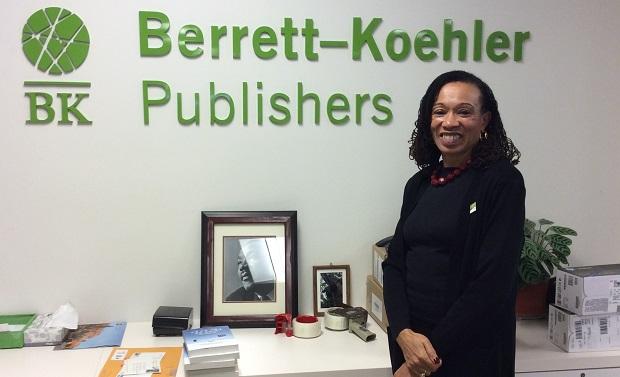As a mental health services provider, I am well aware of the ways that language, or lack of access to language, can be a barrier to quality healthcare resources and services. In my work with Asian Americans and Pacific Islanders (AAPI), I often witness firsthand how the people who need the most therapy services do not have access to providers who speak enough of their language. During May’s AAPI Heritage Month, I wonder what it might take for America to offer enough multilingual services and employees so that no one will feel left out simply for not speaking English.
During May’s #AAPIHeritageMonth, I wonder what it might take for America to offer enough multilingual services and employees so that no one will feel left out simply for not speaking English. Click To TweetFailure to value language diversity in our culture and workplaces can contribute to alienating the most marginalized people and their communities. For the AAPI community, this represents about 6 million people who are not fluent in English and have difficulty engaging with English on a day-to-day basis. If we include noncitizen residents, there are around 66 million U.S. residents who speak a language other than English at home. Linguistic diversity in America is definitely on the rise but seems to be concentrated in the East, West, and Southwestern states.
What are we to do with all this language diversity?
For the most part, it seems that the U.S. defaults to letting the gift of language diversity slip through its fingers without much remorse. After all, speaking, comprehending, and writing English well, fluently, and without accent is a sign of status, privilege, and power in the U.S. and in many developing countries around the world thanks to much of colonial history. Lack of English language fluency not only keeps people out of dominant culture resources but also segregates minorities and immigrants into ethnic enclaves where services are more accessible. Instead of embracing the benefits of multilingualism, we are more invested in creating silos of language-dependent communities that alienate and punish those who do not speak English.
Instead of embracing the benefits of multilingualism, we are more invested in creating silos of language-dependent communities that alienate and punish those who do not speak English. Click To TweetWhat does it feel like to navigate living in the U.S. without understanding the dominant language? 就像这样,看不懂。It feels like trying to read that sentence all the time, everywhere you go, for all things big and small. Getting a driver’s license is difficult, buying groceries is challenging, and accessing resources for perfunctory things can suddenly become a tough chore to tackle. To keep the AAPI community out of dominant culture, we don’t need to discriminate based on race, we can simply make the ability to speak any other non-English language obsolete. Since language is so intrinsically tied to every aspect of culture, erasing a cultural group’s ability to continue speaking in diverse tongues will over time erode the unique aspects of that culture. There are certain words, phrases, and idioms that simply cannot be translated into English, and if they were, would lose their cultural meaning and context. In a sense, language erasure over generations of immigration is simply cultural genocide. There is no way we can preserve our culture across time when we lose the ability to read, write, and speak our languages of origin.
Since language is so intrinsically tied to every aspect of culture, erasing a cultural group’s ability to continue speaking in diverse tongues will over time erode the unique aspects of that culture. Click To TweetYet this slow, intergenerational, tacit genocide is happening all over the U.S. I find this incredibly sad because we are wasting a very valuable resource that many immigrants bring so abundantly to this country. We are missing out on the richness of international culture, perspectives, heritage, and innovation that is embedded in the cross-pollination of languages.
What might a more language-inclusive U.S. even look like? How do we begin to preserve the language heritage of this nation and tap into the wealth of cultural ancestries from around the world?
For starters, I think we need to value immigrants and the language assets they bring. We can do this by becoming more hospitable in our local institutions, workplaces, and services. For example, hiring more multilingual staff at cafes, restaurants, clinics, hospitals, government settings, schools, campuses, shopping malls, and corporate offices. The list goes on. Instead of seeing non-English speakers as disadvantaged, we can begin to appreciate the unique language capabilities that multilingual people can bring to a workplace. When companies hire more multilingual staff and pay more for language ability, educational settings will begin to train more students in every domain to meet those language needs. We will then see more doctors, therapists, teachers, lawyers, accountants, and artists trained in a myriad of languages such as English, Spanish, Mandarin, Korean, Hindi, Arabic, Urdu, Portuguese, and so on. We can learn from each other’s language abilities and create a more innovative, international, and inclusive culture.
When companies hire more multilingual staff and pay more for language ability, educational settings will begin to train more students in every domain to meet those language needs. Click To TweetFor multicultural and multilingual parents with children, raising kids to speak multiple languages will become easier if there are spaces and places that those kids can readily practice their learned dialects and languages outside of the family environment. It will take more than language immersion schools to truly preserve languages for generations. Kids need to see how the second or third language they are learning can be valued and used in their future careers, dreams, and aspirations. We need more celebrities who are multilingual, politicians who are able to speak diverse tongues, and public figures who connect people by using different languages to inspire the next generation.
For the AAPI community, language preservation is not only essential for connecting to our families practically in terms of communication, but also for connecting to ourselves and the essence of who we are as people with heritage. While it may be easier and more comfortable in the short term to “English-wash” everyone who come to the U.S., there is tremendous opportunity and value for this nation to tap into the plentiful diversity of languages brought here for future generations.
For the AAPI community, language preservation is not only essential for connecting to our families in terms of communication, but also for connecting to ourselves and the essence of who we are as people with heritage. Click To Tweet
References:
https://minorityhealth.hhs.gov/omh/browse.aspx?lvl=3&lvlid=63



















